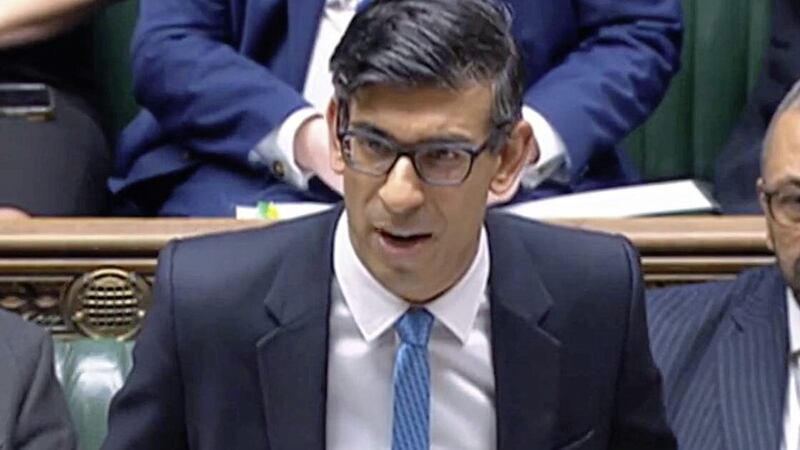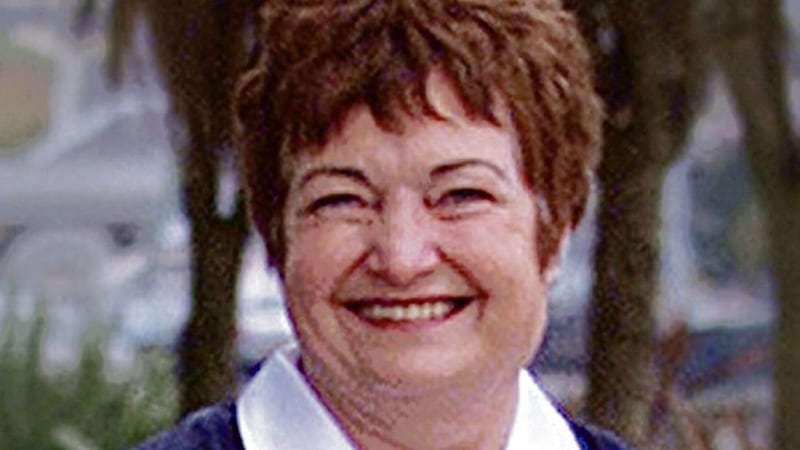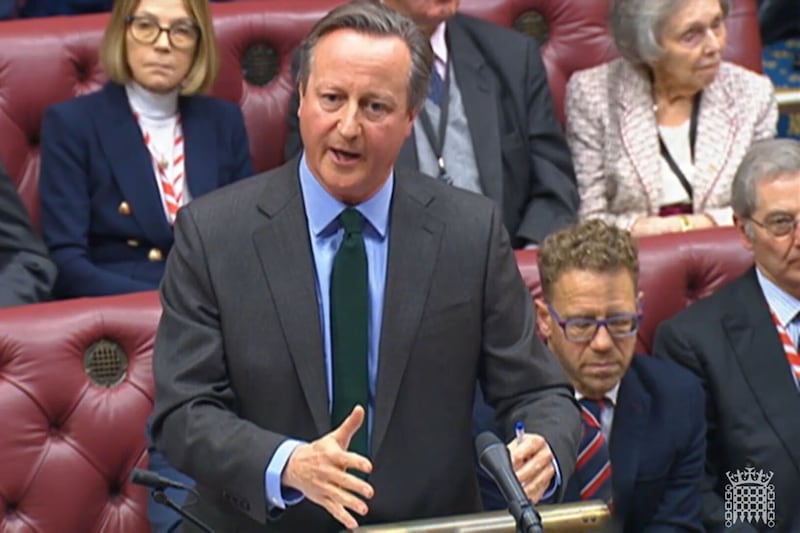THE EU has stretched itself as far as it can to resolve the impasse around the protocol, according to former taoiseach John Bruton.
The one-time Fine Gael leader and EU ambassador to the US was speaking to The Irish News as Brussels and London edged closer to agreement on the post-Brexit trade arrangements.
However, British Prime Minister Rishi Sunak is facing scrutiny over any potential deal from both the opposition at Westminster and internally from Tory eurosceptics.
Mr Sunak held a video call with Northern Ireland business representatives on Wednesday afternoon soon after being challenged at Prime Minister's Questions by Labour leader Keir Starmer over whether he allow MPs to vote on the deal.
While the Tory leader said "parliament will express its view" he gave no commitment on a vote. He was also pressed by Sir Keir on whether the north would continue to be subject to some EU laws.
But Mr Sunak insisted his Labour counterpart was "jumping ahead" and that discussions with Brussels were continuing.
DUP leader Sir Jeffrey Donaldson, who addressed members of the pro-Brexit European Research Group (ERG) on Tuesday night, said it was "unacceptable" for EU laws to be imposed on the north without democratic scrutiny or consent.
He said rather than "tweaking" the protocol, any fresh deal should involve "rewriting the legally binding treaty text".
Mr Sunak said addressing the "democratic deficit" was an essential part of the negotiations with Brussels and he had heard the DUP's concerns "loud and clear".
Amid continued speculation of growing dissent in the Tory ranks, Home Secretary Suella Braverman played down suggestions she could resign if Mr Sunak gave too much ground to the EU.
Mrs Braverman, who quit as a minister in Theresa May's government over her Brexit deal, said she was confident the prime minister was committed to safeguarding the north's place in the UK.
She also denied that the contentious Northern Ireland Protocol Bill had been shelved.
"That's not my perception – I know that the prime minister is absolutely committed to resolving this issue, regardless of the implications," she told GB News.
The home secretary said the British government was "committed" to working with the DUP.
"Ultimately Stormont will only function if the DUP supports any proposal," she said.
Former ERG chair and Minister of State for Northern Ireland Steve Baker told UTV that he was "delighted" to be part of Mr Sunak's government and that the prime minister "enjoys my loyalty".
SDLP MP Claire Hanna told The Irish News that the influence of the ERG had been "wholly negative".
"They have dragged the conversation away from the practical realities of life and the economy, and made by people who have little or no interest or understanding of the complexities here," she said.
"For years media and political commentary around Brexit became a bit of a purity contest dominated by a small number of loud voices but now as the economic and political downsides for Britain have become clearer I sense less patience for allowing a small number of hardliners in the ERG to dominate and delay for much longer."
The South Belfast representative said there were adequate votes Westminster to support any deal.
"I suspect Rishi Sunak knows that if he doesn’t face down the ERG on this issue they will just keep undermining him for the rest of his term," she said.
Former taoiseach John Bruton said the publicly stated positions of the two sides were "quite far apart" but that he believed work aimed at resolving the difficulties was going on behind the scenes.
"I'm sure there is work ongoing aimed at reconciling these difficulties and building confidence – the atmosphere seems to be part of that," he said.
Asked if the EU had stretched itself to accommodate the UK, Mr Bruton said it had but that the basis European Single Market meant there was limited flexibility.
"The Single Market is necessarily very exact, that's the essence of it – it's not vague, it's definite and it's on the basis of its provisions being definite that you can move, sell, buy and transact business across 27 countries," he said.
"If it was based on flexible interpretations, there would be no single market ."








